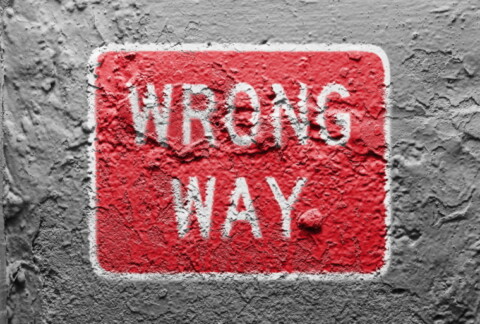What to tell your web designer before they start your project
So, you’re investing in a brand-new website and expect to be delivered exactly what you want. Then now is the time to get as much information together as you can to give to your chosen web design company. The majority of web design companies will cost up a project on the amount of time needed to create a website. They will ask what you want your website to do, what design ideas you have, and any features you want it to have. Guesswork by your web designer will only waste your time, their time, and will end up costing you more.
As with any kind of project, preparation is crucial. We’ve got you covered with key areas you should think about and make decisions on. Establishing your requirements and communicating them clearly will help the web design company understand exactly what you want and help make your project run smoothly. Let’s get started!
What do you want your website to do?
Sounds a silly question, but why exactly are you having a new website created? What do you want it to achieve for you; it to generate customer leads, sell your products, or promote an event, for example? Specifying your website’s goals and objectives will help your chosen web designer understand the focus of the project.
How much do you have to spend?
You need to establish how much you are willing to spend on your new website and convey this along with your requirements to the web design company. They will let you know if they are able to work to that budget and provide you with what you want. Web design companies have different pricing structures, depending on the type of website solutions they offer. Keep in mind that the cheapest option that promises the world may be too good to be true.
How quickly do you want your new website?
Do you need a quick turnaround, or are you flexible? Be aware that many web design companies have multiple projects running in parallel, so getting a website created for next week may be out of the equation. Establish a realistic timeline for your project and relay this to your chosen web designer. They will tell you if they can work to your constraints and make your project stay on track.
Who is the website aimed at?
Making sure that your new website appeals to and attracts in your target audience will be essential. But who makes up that target audience? For example, is it a particular demographic in a certain location? Successful websites are always created with the customer in mind; they achieve the right design layout, colour scheme and have text and image content pitched at the right level.
What design preferences do you have?
Following on from the above, you may already be confident in your design preferences and how the website needs to appeal to your target audience. On the other hand, you may be unsure and require some artistic guidance. A reputable web designer will ask you give some examples of websites that appeal to you, and ones that don’t. They will then be able to work their magic in creating graphical concepts of how your website could look.
Do you have branding guidelines?
Some companies want consistency and continuity of their branding on everything they own. They will have branding guidelines showing how logo, colour palettes, fonts, and any other elements should be used. If your company has branding guidelines make sure that you choose a web designer that has experience working to these parameters.
What about content for your website?
Achieving the best design always seems to be top of people’s list, but it’s the content that can make or break a website. Have you written-up content and chosen images for your website yet? Creating text content takes time and effort but needs to be prepared as soon possible. Web design projects are often delayed because content isn’t available. If you need help writing up your content, or getting the right images, ask your web design agency if they can help.
What kind of website functionality to you want?
Your web design company will need to know any specific features or functionality that you require for the new website. These are things like ecommerce capability, any online forms you want, user login area, integration with third-party platforms such as your accounting system etc. Clearly communicating your functionality requirements will allow your web designer to cost-up your project more accurately from the start, hopefully avoiding any nasty surprises for you further down the line!
What about your website’s structure?
Plan out how your new website’s navigation structure should be, this includes the main menu and submenus. Also, if you require any additional navigation elements within this structure. Keep in mind that visitors to your website will want to access information they need in the least number of clicks possible. If you need any help achieving the best possible navigation structure your web designer will of course be able to advise you.
What about marketing your website?
When your new website launches, it will take time, effort and money getting it seen. There are many ways this can be done, for example SEO, Google AdWords and social media. Will you be doing your own online marketing, or will you need help? Do you have any funds set aside for marketing activities? Ask your web design company what services they offer, and realistic budgets required to achieve the exposure you seek.
Closing thoughts…
There seems to be lot to think about when getting a website done, but putting in the time to establish your needs, and communicating these clearly will help your web designer design and build the perfect website for you. Throughout your web design project communication is key, so prepare yourself to be involved in the process. You will most certainly be asked for additional information and to provide feedback on works carried out by the website design and development team.


